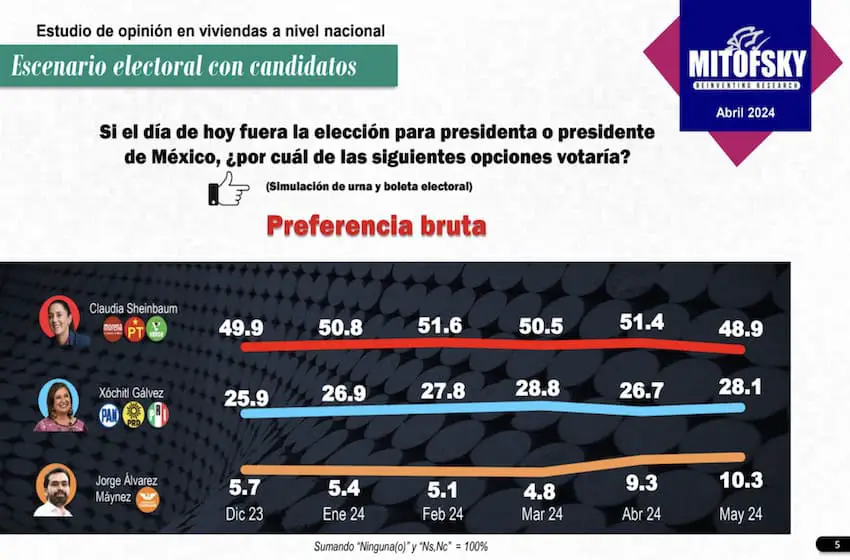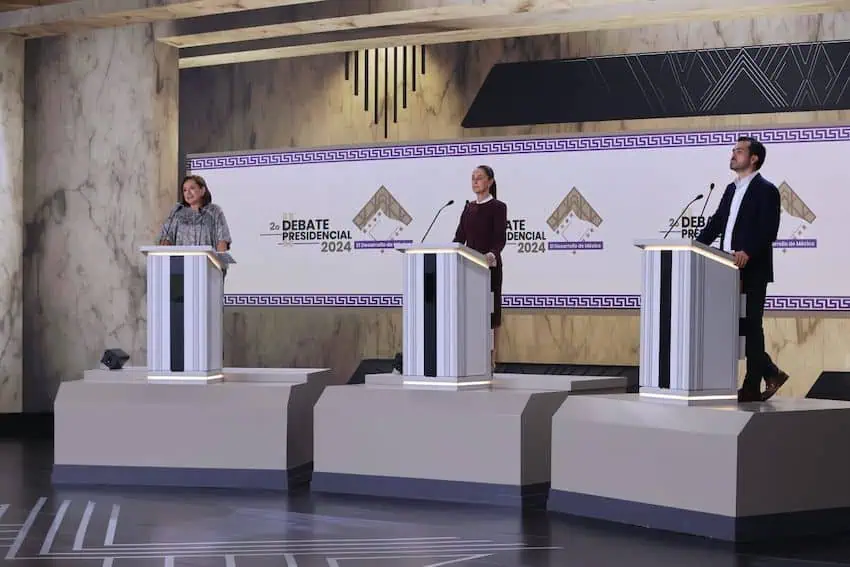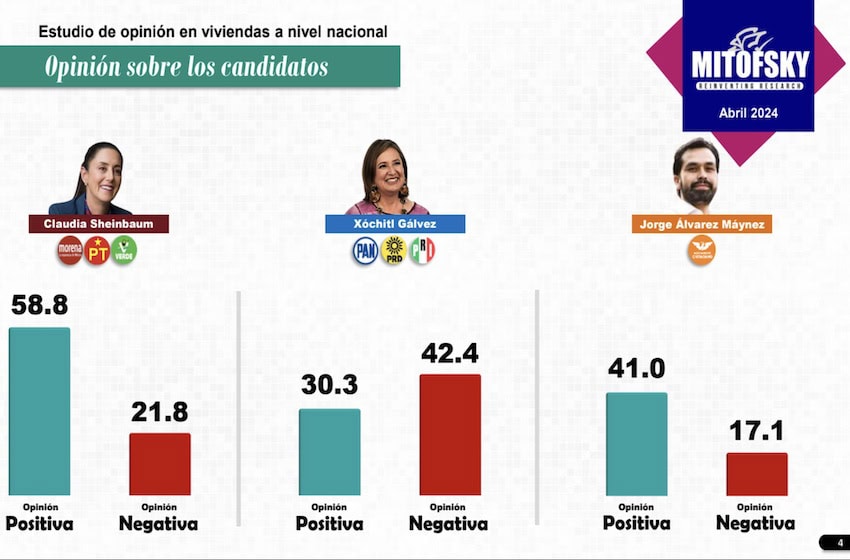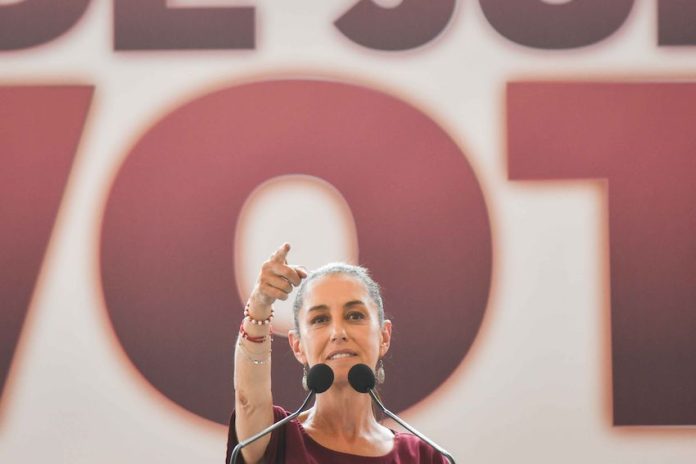Claudia Sheinbaum remains the clear frontrunner less than three weeks before Mexico’s presidential election, but Xóchitl Gálvez and Jorge Álvarez Máynez have both gained ground, according to the results of a new poll.
A poll conducted for the newspaper El Economista earlier this month found that 48.9% of 1,600 eligible voters intend to vote for Sheinbaum, the candidate for the ruling Morena party, the Labor Party (PT) and the Ecological Green Party of Mexico (PVEM).

Support for the former Mexico City mayor declined 2.5 points compared to the poll conducted by the Mitofsky polling company for El Economista in April.
Support for Gálvez, candidate for a three-party opposition bloc made up of the National Action Party (PAN), the Institutional Revolutionary Party (PRI) and the Democratic Revolution Party (PRD), increased 1.4 points to 28.1%, while 10.3% of those polled indicated they would vote for Álvarez Máynez, the Citizens Movement (MC) Party aspirant.
Support for the MC candidate increased 1 point compared to a month earlier.
The remaining 12.7% of those polled — all of whom filled out mock ballots in their homes between May 3 and 6 — failed to indicate a preference for any of the three candidates vying to win the June 2 election and succeed President Andrés Manuel López Obrador on Oct. 1.
If they are stripped out of the results, support for the three candidates is as follows:
- Sheinbaum: 56% – a decline of 2.8 points compared to April.
- Gálvez: 32.2% – an increase of 1.7 points compared to April.
- Álvarez Máynez: 11.8% – an increase of 1.2 points compared to April.

The poll was conducted shortly after the three candidates faced off in the second of three televised debates. Gálvez was a more assured debater on April 28 than she was in the first debate on April 7. Her performance may help to explain the increase in her support as reflected in the latest El Economista poll.
The 1,600 respondents were also asked to compare the personal attributes of the three candidates.
More than 55% of respondents said that Sheinbaum — a physicist and environmental scientist who was environment minister in Mexico City when López Obrador was mayor in the early 2000s — is the most experienced.
The figures for Gálvez, a former senator and mayor of the Mexico City borough of Miguel Hidalgo, and Álvarez Máynez, a 38-year-old ex-federal deputy, were 19.7% and 8.5% respectively.
Sheinbaum also came out on top when respondents where asked which candidate is the most intelligent; who is closest to the people; who would make the best president; who would attract the most investment; and who would create the most jobs.
In addition, higher percentages of those polled said that the Morena candidate “represents more of a change” and is “the most honest” of the three candidates.
Just over 20% of the respondents said they don’t trust Sheinbaum, while 46.3% said the same about Gálvez.

One in ten of those polled nominated Álvarez Máynez as the candidate they don’t trust. Much of his campaign messaging is directed at young voters, and there is evidence that he is winning some members of that cohort over. He finished well ahead of Gálvez in a mock election held on university campuses last week, although Sheinbaum was the clear winner.
The Morena candidate is campaigning heavily on the fact that she is the only presidential aspirant that represents a continuation of the so-called fourth transformation of Mexico initiated by López Obrador. She has committed to continuing all the current social and welfare programs — as has Gálvez — and has expressed support for the constitutional reform proposals López Obrador sent to Congress in February.
Among the proposals Gálvez is presenting to voters is her plan to put an end to the non-confrontational “hugs, not bullets” security strategy favored by the current government.
What do other polls say?
According to the latest “Encuesta de Encuestas,” or “Poll of Polls” published by the Expansión Política news site, Sheinbaum has 56% support, 23 points ahead of Gálvez on 33%.
Álvarez Máynez is in a distant third place with just 8% support.
Expansión Política says it collates poll results from more than 40 polling companies to come up with a “more exact” assessment of voters’ intentions. It last updated its “Poll of Polls” on Monday.

Expansión Política said that its latest numbers were derived from more than 600 polls.
“We don’t discount any public poll that discloses its methodology, although we do assign different weights to each polling company depending on their historic performance,” the news site said.
Expansión Política also reported Monday that the probability of Sheinbaum winning the presidential election on June 2 is 98%, while the probability of Gálvez prevailing is 2%.
The news source said that Sheinbaum’s probability of winning is “significantly high and suggests that … [she] will be the winner.”
However, Expansión Política added that a Sheinbaum victory is not a sure thing, remarking that “saying an election is defined” ahead of it being held “implies certainty that is rarely possible in the context of political dynamics.”
With reports from El Economista
